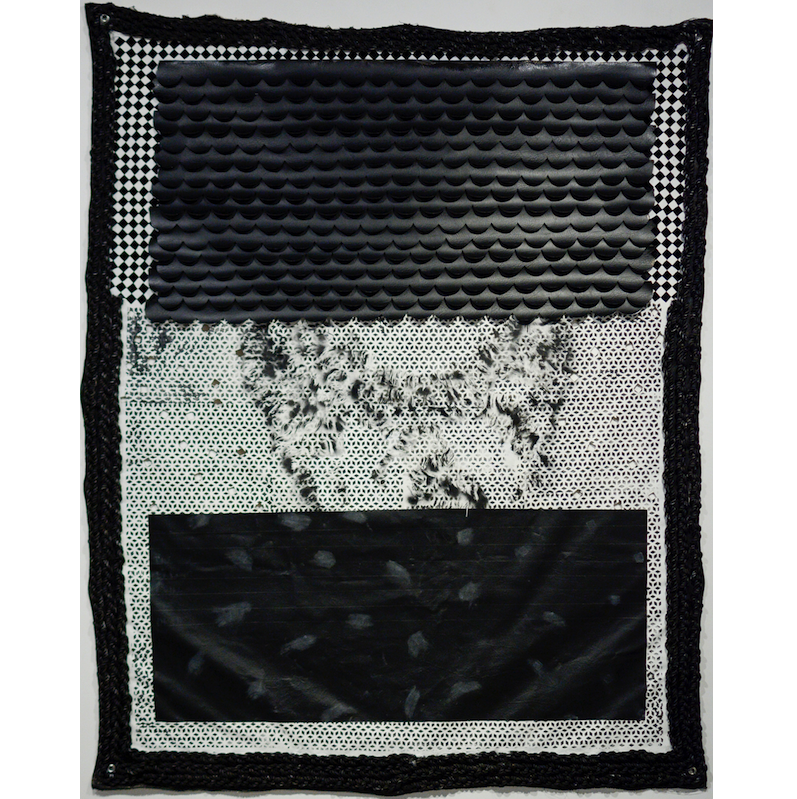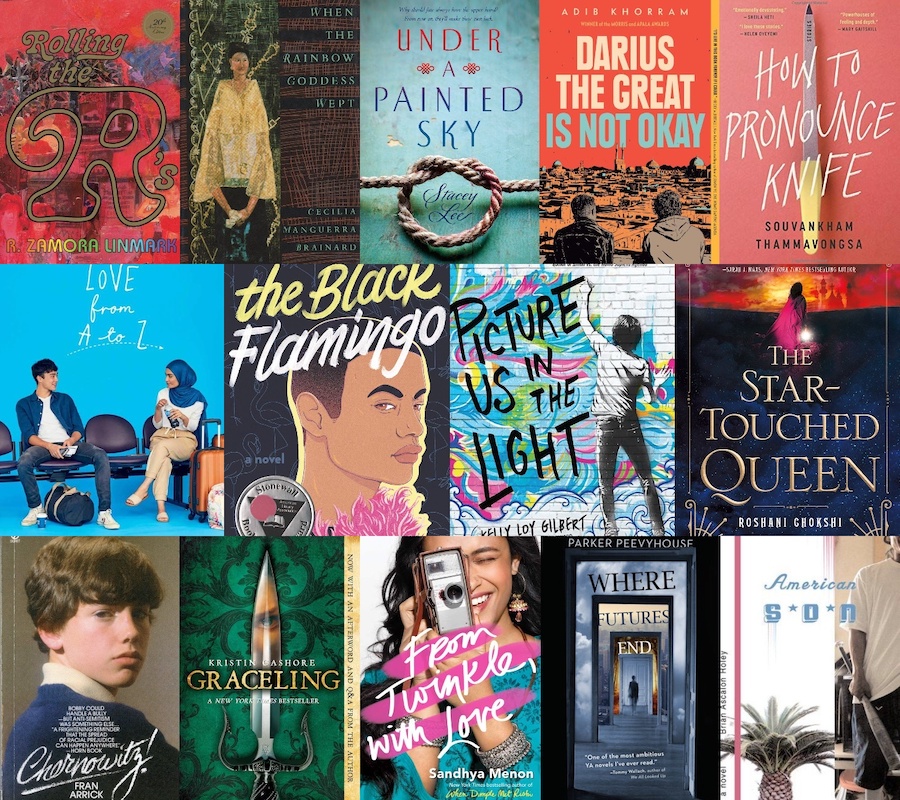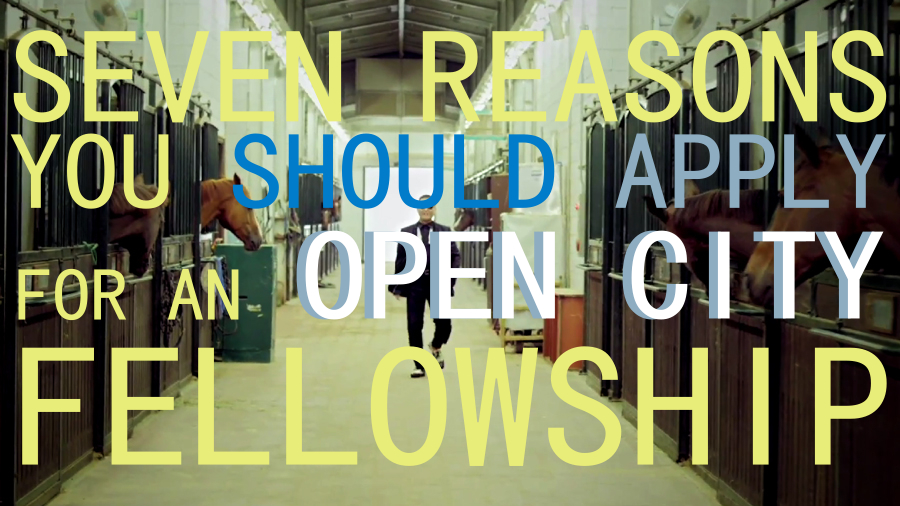“I absolutely did not set out to write a lesbian Cinderella. It wasn’t the story I intended to tell, so it took me a while to come around to the idea of telling it.”
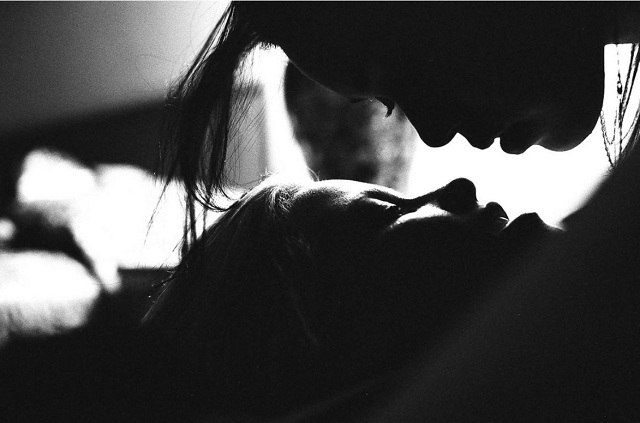
September 18, 2012
With her new book Adaptation, out today, YA fantasy and sci-fi writer Malinda Lo is making the jump from fairy tales to extraterrestrial life. But far from little green men, her rendition of what’s out there has always been a bit more seductive. Lo’s 2009 debut, Ash, is a moody, girl-meets-girl Cinderella rewrite, and in 2010’s Huntress, the heroine can’t concentrate on her quest to save the world because sexy, earthy heroine no. 2 is sleeping in the room next door. Lo’s books capture that young-person feeling in which everything seems heightened—they’re about first love, first desire, and difficult choices, about seeing, as a character in Huntress sees, “every possible shade of pine needle.” In Adaptation, Lo gives us another pitch-perfect adolescent landscape, where the fear of looking dorky in your gym clothes takes up mind-space just as surely as the fact that you may have uncovered evidence of aliens. Protagonist Reese is thrown from high school life to Area 51 and a hoodie-wearing, pink-lip-glossed mysterious girl who wants to buy her coffee. Here, the award-winning YA novelist speaks with The Margins about the I Ching, The X-Files, and combating heteronormativity in YA lit.
Let’s talk about your new book Adaptation, which doesn’t really read like science fiction—it’s set in 2014, in a world much like our own (with bird strikes taking down planes, distrust of government, and hacker-activist heroes). But I think that’s what makes it so fun, the idea of strangeness and mystery hidden as parts of everyday teen life. Do you consider yourself solely a fantasy and sci-fi writer? Definitely not. I read a lot of different genres of fiction and I hope to write many different genres of fiction! I started off with fantasy and science fiction, although you’re right, Adaptation isn’t Star Trek science fiction—it’s more X-Files science fiction. It’s set in our world, and it has a lot of elements of mystery and thriller. I love, love mysteries and I’ve been reading them my whole life. I think that mysteries might even be my one true love, so hopefully someday I’ll write a real mystery.
You mention The X-Files. I read that you did master’s research on The X-Files and spent a week at Fox Studios, sitting in on production meetings and watching an episode shoot. Were you a big fan of the show? Did that have any influence on Adaptation? I absolutely was an X-Files fan. I actually got a grant to go study the X-Files production, which was amazing; I have to admit the reason I wanted to study the show was that I was such a big fan of it. The X-Files was definitely a big influence on Adaptation, and I think anyone who reads it can see that very clearly.
Would you say you’re more of a Mulder or a Scully, a believer or a skeptic? I’m more of a late X-Files Scully. Not the beginning when Scully was very much like, “I don’t believe anything at all,” but I am definitely not someone like Mulder, who wants to believe so deeply [that he] absolutely need[s] evidence. And I think, in the end, Scully actually believes more.
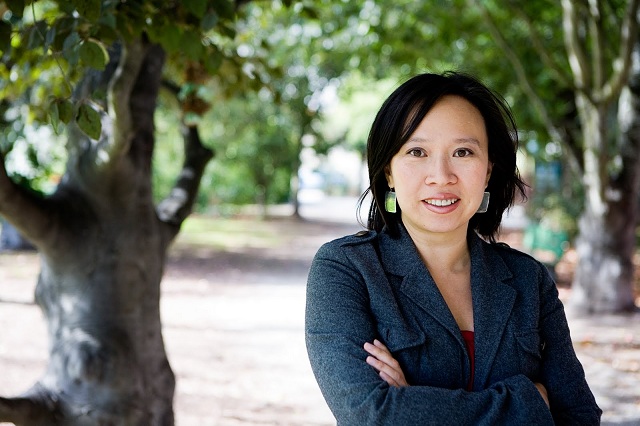
What in pop culture influences you these days? I was a big fan of the new revamp of Battlestar Galactica, which I found very inspiring. I don’t think that necessarily comes through directly [in my writing], but I love the way that series dealt with being human and what that meant. I was a big Buffy fan so that was a big influence on my first novel, Ash. They’re completely different stories—one is about fairies and the other is about vampires, but I would say that was an influence on me then.
Adaptation is part of a planned “duology” of contemporary sci-fi thrillers. Will the second book retain the same characters and world? It would be interesting to see how “the future” plays out given what we know at the end of Adaptation, which I won’t give away! Adaptation and its sequel are one whole story, so really it’s part one and part two, and Adaptation is part one. The sequel picks up the moment after the end of Adaptation, and the same characters will be in it. So the sequel is, literally, the payoff. I’m in the middle of revising it now; it’s coming out next fall.
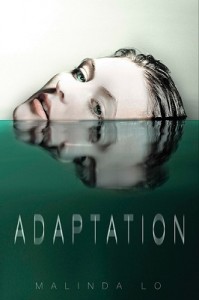
Your books have a dreamy quality in that your characters tend to be imaginative, interior types, but they’re also dreamy because of their idealism—i.e., gay characters who come out to supportive environments, or who (in the earlier two books) don’t need to “come out” at all, as there seems to be less divisiveness about sexual orientation in their societies. Plus there’s strong multiethnic representation and lots of women in leadership roles, like the President in Adaptation or the huntresses and queens of the earlier books. Are these conscious decisions on your part? Do you try to create book worlds that you can feel proud of? The decision to not have any homophobia in Ash and Huntress—that was absolutely a conscious decision. I didn’t want to write coming-out stories, and the way to do that is to make it completely okay to be in a same-sex relationship. So that’s why there’s no coming out in those books: Their worlds don’t have any homophobia. In terms of Adaptation, I decided that I wanted to minimalize the coming-out issues. I’ve lived in San Francisco for many years and it’s one of the most progressive, open-minded, and tolerant communities in the country, so it was quite natural for there not to be too much of a coming-out issue in Adaptation. That does actually become more of an issue in the sequel, not because there’s anything wrong with being gay but because the identities of these characters become public. So when the public interacts with them, that’s when they have to deal with the issue. In terms of women in leadership roles, I think it’s interesting that you mentioned the female president of Adaptation and the fairy queen in Huntress—yes, they’re powerful, but what I like about them is that they’re not necessarily good women.
The month-long “YA Pride” series on your blog in June was great. I’m interested in your work to fight heteronormativity in YA, which you’ve said is a bigger problem in the publishing industry than homophobia. Is this something you’ve always been aware of? No, I don’t think I really put it in those terms until I interviewed Emily Danforth for that YA Pride series. She’s the author of The Miseducation of Cameron Post. I’m a huge fan of hers. She thought that heteronormativity was more of a problem than direct homophobia, and when she explained it in that interview, I thought, yes, that’s absolutely right, because it’s not that most people set out to hate gay people. It’s that they expect the characters they think about and books in themselves to include straight characters. So there’s a difference. Homophobia isn’t the same as heteronormativity, at all, and I think that heteronormativity can be harder to fight because it’s so subconscious, so deeply ingrained throughout our entire society in all kinds of cultural productions, TV, film, books, everything. It’s everywhere. That’s harder to fight.
I thought it was interesting that you’ve said you didn’t know Ash (the protagonist of Ash) was gay until a friend commented that the prince character was so boring. Why didn’t you set out to write a gay character? I absolutely did not set out to write a lesbian Cinderella. I thought it was going to be a straight story. And that’s probably because I have a lot of internalized heteronormativity in me. It didn’t occur to me that a lesbian Cinderella was even a possibility until my friend pointed out that the character really didn’t like the prince, that she liked this other character, who happened to be female. The realization that the main character liked another woman was extremely shocking to me. It wasn’t the story I intended to tell, so it took me a while to come around to the idea of telling it. I was really afraid it would make my book unsellable. I didn’t think anyone would want to read a lesbian Cinderella. Luckily, I happened to be wrong. My experiences with Ash have made me much more confident in writing queer characters and saying, who cares that the majority expects characters to be straight? And it’s much easier now for me to do it. Ash was a different experience. It was a lot harder for me.
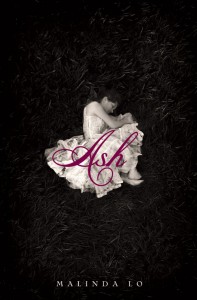
But you didn’t have any problems when it came to publishing it? No, not at all, and we got five offers to publish Ash. It was incredible. My publishers at Little, Brown have been incredibly supportive of my book, and they’ve always been very positive about the content in it.
You spoke about the problem of heteronormativity in YA at WisCon (the feminist sci-fi convention in Madison, Wisconsin, held annually since 1977) this spring, particularly the trend of dystopian novels focusing on love and marriage that omit any deviations from heterosexual behavior. What is “feminist sci-fi,” in your mind, and do you think of yourself as still being in a small vanguard, fighting for something? How have you seen the landscape change over the years? I think that when I first encountered the term feminist science fiction, it was in reference to the kind of fiction being published in the 1970s. It was very overtly about feminist issues, like The Female Man, by Joanna Russ. I don’t think that I’m writing feminist science fiction in that vein. I think that feminist science fiction as a genre has continued to evolve since the 1970s, so the term no longer refers to that first understanding that I had. I consider myself a feminist, and although I don’t write overtly political stories, I’m certain that my political worldview permeates them. I don’t know if others believe that I write feminist science fiction—that’s something for them to decide. For myself, I simply want to write stories that I’m proud of. Since I’m a feminist, I would imagine that those stories would include feminist elements, but they’re never direct in terms of political goals.
NPR just came out with a readers’ poll of the 100 best young-adult novels, a list that’s dominated by women writers, whereas there’s very few women in the NPR top 100 sci-fi and fantasy books poll taken last summer. Do you have any theories about why this is? I think that with young adult fiction, there are simply more female writers, so statistically speaking you’re going to end up with more female writers. I don’t know the demographic makeup of science fiction authors; I’m not sure whether the proportions of male and female writers are equal or not. I suspect that they are, but I think that science fiction has a long history of being exclusionary of women. So that may be why those lists end up like that, but that’s just my speculation.
I love the fact that David in Adaptation is reading Ursula K. Le Guin’s The Left Hand of Darkness in the book’s opening pages, at the airport, before everything goes haywire. I thought very personally about what book he should be reading!
So what’s the significance—how did you choose that one? The Left Hand of Darkness is a very fascinating novel. It’s absolutely feminist science fiction, specifically about gender and how gender changes. And I think that’s why I chose to make David read that book. I wanted him to have that knowledge in his head, so you know that he’s read that book.
Are there any contemporary works of non-heteronormative YA lit that you’d recommend? There isn’t a lot of YA fantasy and science fiction that includes LGBT characters, which I find surprising. I think there’s a sense in writing that LGBT characters must only be main characters in issue books—you know, books that are about being gay. And I think that is changing very slowly. I’d like there to be more books about gay and lesbian main characters where their sexual orientation is not an issue. In terms of YA books with lesbian and gay main characters that I’ve read recently, I’ve really, really loved, as I said, Emily Danforth’s The Miseducation of Cameron Post. I also really love The Difference Between You and Me, by Madeleine George, which is a contemporary YA book about a main character who is queer but that isn’t about her sexual orientation. And yet it does deal with various issues around identity, and I think that book is really interesting because of that—because identity isn’t only about sexual orientation even if you are gay.
I wonder if most YA writers had intense relationships with certain books as young people. Did you and what were they? Yeah, I had intense relationships with books when I was young! My favorite growing up was A Ring of Endless Light, by Madeleine L’Engle. She wrote A Wrinkle in Time, but this is a different series, about a girl named Vicky Austin, and A Ring of Endless Light is my favorite of her books. I also loved Robin McKinley’s fairy tale retellings, and especially The Blue Sword. It isn’t a fairy tale retelling but it’s very much a hero quest in which the hero is a girl.
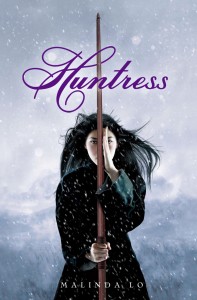
Let’s go back to one of your earlier books. Philip K. Dick famously used the I Ching in The Man in the High Castle, both to drive characters’ actions and to guide his writing of the book. He also claimed to have used the I Ching in his own life since 1961; he described it as “an attempt to teach you a way of behavior that will cause tragic schisms not to come to the surface.” This is interesting because the main characters in Huntress have major dilemmas they have to work out, such as the choice between love and destiny, or loyalty and power. And sections of Huntress are prefaced by line readings from the I Ching. How did that work shape your writing of the book? Well, first I have to say that the passages from the Book of Changes—that’s what I call it in Huntress—are not from the I Ching. I made them up based on passages from the I Ching, but they’re not from the I Ching. However, the I Ching definitely was influential in writing the Huntress story, especially because fate and destiny are big issues in the book. The philosophy of the I Ching helped me conceive what the characters believe about those issues and also the worldview of the teachers at the Academy of Sages [the traditional training institution in the Huntress society]. The I Ching provides the cultural framework for much of Chinese belief, and those beliefs, combined with Taoist beliefs, provide the philosophical backbone of the world in the Huntress.
So what’s next for you in terms of future projects? I have lots of ideas for what I want to do next, but I’m not going to share! I need to keep them to myself while I work on them. It will be exciting; that’s all I’m going to say!

